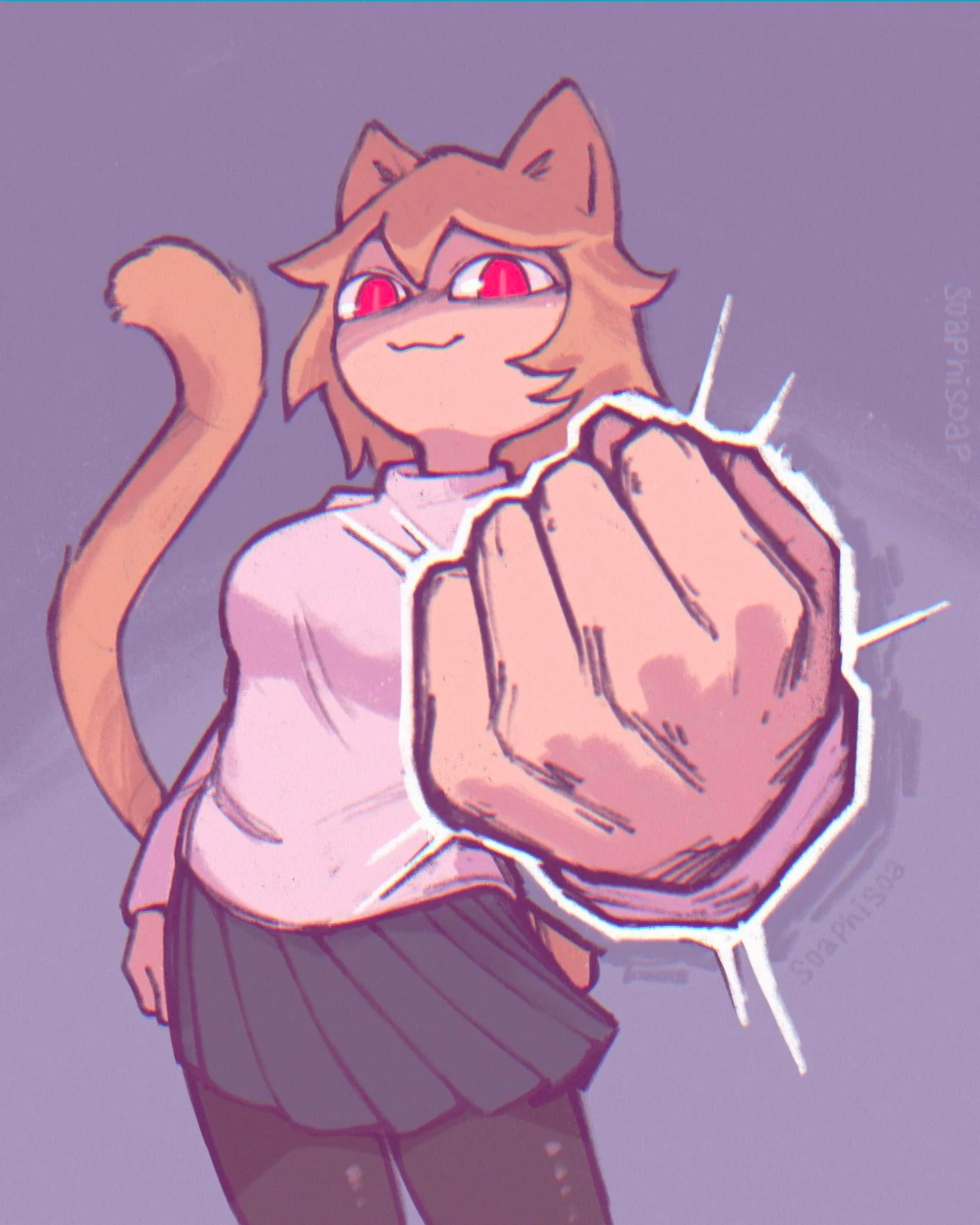Virgin Knight Who Is the Frontier Lord in the Gender Switched World - Chapter 215
- Home
- All
- Virgin Knight Who Is the Frontier Lord in the Gender Switched World
- Chapter 215 - A Tranquil Beginning
Anastasia found herself unable to grasp the mood of the room.
Despite being the start of an inquisition, the atmosphere was not solemn; the setting was surprisingly simple.
Two long wooden tables were set out, along with numerous single-person wooden chairs, and even the Pope, cardinals, and electors were treated no differently.
It was as if they were saying, “Since it’s just close friends gathering, sit wherever you like, no need to worry about formalities.”
One rather obese cleric of the orthodox faction was openly displeased with the small chair he had been provided.
However, when the Pope gave him a brief glance, he hurriedly sat down with a frightened expression.
The three of us electors seated ourselves near the door where Faust stood guard, across from the clergy.
The Duke of Temeraire, completely ignoring the atmosphere, sat down in the seat closest to the Pope and the cardinals with a heavy thud.
Among the robed clergy, two wore hoods that obscured their faces. One of them was Sabine, without a doubt.
…But the other? I had no idea who that could be.
It was not someone we had arranged for.
Once everyone was seated, as I pondered what would happen next, the Pope suddenly began speaking, as if engaging in casual conversation.
“One day, a missionary from a mendicant order visited a frontier village. It was a village deeply faithful to the Cologne Sect. The village chief said, ‘Our priest is none other than the Holy Mother of the Cologne Sect. We have no intention of changing faiths, so go elsewhere.’ Yet the missionary, undeterred, replied, ‘I have crossed mountains and fields, risking my life to bring you this message. When I stand before God’s judgment, I believe that if my neck is sagging with fat, I will be judged for sloth and gluttony. Now, is my neck fatter than your priest’s, despite the hardships of my journey?’”
The Cardinal of Cologne, just as casually, pressed for the rest of the story.
“And then? What happened next?”
“The village chief spoke again,”
The Pope, raising both hands as if in surrender, in a lively reenactment, cried out:
“The farmers of the frontier village answered, ‘You are fatter. Despite your long journey, you are fatter than our priest. Our priest eats the same meager meals as we do, and he works the fields alongside us, growing thin just like the rest of us. If poverty is the measure of piety, then get out! We will never abandon our faith in the Cologne Sect!’”
After shouting this, the Pope continued with a cheerful tone.
“Well, it’s a story I heard as a child. My master, who was like a mother to me, was a missionary of the mendicant order. She found me as an orphan during her travels and told me this tale, from her own experience of encountering the Cologne Sect during her preaching. It’s not a unique experience; any serious missionary of the mendicant order has likely gone through something similar.”
It was like a gentle sermon.
Not filled with anger, but with the reminder that sloth and gluttony manifest in the sagging of one’s neck.
A gentle nudge, as if to say, be careful of overeating and make sure to stay active.
It was a sermon like a kind Holy Mother advising an overweight believer to change their lifestyle.
“What do you think of this story, Cardinal of Cologne?”
“For both the mendicant order and the Cologne Sect, it is unfortunate that two parties, who both practice poverty and are zealous in their preaching, happened to clash. It’s an admirable story in many ways—but not for us, of course. Not for the Cologne Sect.”
“Hmm. And why is that?”
The Pope tilted his head slightly.
“Sloth is a sin. Gluttony is a sin. This is exactly as the Pope says. It’s good that the priest is thin. Both the missionary of the mendicant order and the priest of the Cologne Sect are practicing poverty out of their own volition, and that’s fine. But—what is not fine is that the farmer is deciding their faith based on their hunger.”
The Cardinal of Cologne said this with a sorrowful expression.
“I’m not saying it’s entirely wrong, but—using one’s environment as the basis for faith is not something I can condone. Rather than force faith through unilateral preaching, I would prefer to encourage belief in a situation where there is at least some choice. It is the duty of the clergy to speak of God’s love, but we should at least first fill their stomachs.”
“I feel the same, Cardinal.”
The Pope answered with joy.
Suddenly, I recalled the story of Saint Georgius.
When Saint Georgius said, ‘Promise to convert, and I will slay this dragon for you,’ and dragged the dragon before the people, tied up like livestock, wasn’t that a similar situation?
From a personal standpoint, I understand the “give and take” of that very well.
It was an exemplary action of a knight, a true honor, and a saint everyone should aspire to be like.
The world of knights is founded on the principle of, “I protect you, so you provide for me.”
The lord-vassal relationship is the same.
It is based on mutual obligation and service, and if one cannot uphold their end, then they must die without delay.
Once it no longer benefits you, it’s only natural to kill or be killed.
Isn’t that how the world works? But it seems the Pope and the Cardinal of Cologne see things differently.
I thought of speaking up, but this didn’t feel like the right time.
The Pope and the Cardinal of Cologne continued their peaceful conversation, but suddenly, the Cardinal shook her head.
“In any case, the poverty of the frontier is unforgivable.”
The Cardinal opened her aged, worn hands.
They bore permanent calluses from gripping a hoe, proof that she had experience working the fields.
“Helping the poor to till the fields is good in itself. However, even though we of the Cologne Sect gathered wealth, all we could do was lament about how little we could actually accomplish. We lacked farming tools. We lacked the pottery shards necessary to communicate and give orders. We needed clergy who could open books and read to those who sought knowledge or entertainment. Wherever we went, there were never enough seeds.”
The Cologne Sect’s involvement in the frontier.
Eastern settlers.
I recalled reflecting with Astarte on how little I knew of the history of the Polydoro family.
Had I known beforehand, I wouldn’t have made reckless decisions regarding immigrants or aid. But Mother Liesenlotte kept it all from me.
That old hag is always late to warn me, keeping silent until the very brink of failure.
And she’s still after Faust.
Someday, I’ll kill her.
“First, you must fill their bellies. Aid to the frontier was extremely difficult. We lacked everything. Even now, but back then, all we could do was work the fields with them, hoping at least for smiles. We desperately came up with entertaining sermons, the only comfort we could provide. We needed something, anything, that could solve our problems explosively. Something—”
The Cardinal’s hands trembled as she groaned.
I knew how difficult the frontier work had been.
That’s why the Cologne Sect’s support was invaluable to the settlers.
It’s only natural that many frontier villages are staunchly faithful to the Cologne Sect.
In some places, like the Polydoro territory, the entire village follows the Cologne Sect.
“And that’s where gunpowder comes in?”
“Gunpowder! Yes, it brought wealth to the Cologne Sect. It solved many financial problems. It’s not just used in cannons or guns for war or self-defense against bandits. Nowadays, it’s even used to break through hard bedrock. That, at least, is some consolation. However, the truth is, that success is something passed down through generations, and it’s not even ‘what we truly want.’”
The Cardinal of Cologne said something important.
From Faust and Martina’s reports, I already knew, but it seems that the Cologne Sect doesn’t just mine gunpowder ingredients but actively “produces” it.
The Pope, recognizing this, praised the invention of their gunpowder production techniques.
“It’s akin to the great invention of ‘printing’ from Mainz. There’s no denying that.”
“Indeed, Your Holiness.”
With a tilt of her head, the Cardinal of Cologne asked curiously.
“Is it gunpowder you wish to discuss?”
“We could, or not. I have no intention of declaring it heresy simply because you use or produce gunpowder. Sure, gunpowder gave rise to guns, which killed many. I see them as weapons born from hell, worse even than crossbows. But.”
Pope Yulia showed not even the faintest frown.
“Even printing can be used to kill. Spreading false rumors about a crime someone didn’t commit, destroying their honor, manipulating the people into violence for the sake of some false justice. People can be incited to attack someone just because they want to. For that reason, I won’t call gunpowder, the fruit of academic endeavor, heretical. We are not backward, narrow-minded priests in some distant land, denying heliocentrism even today. So long as it’s used properly, gunpowder might one day be more than just a tool for killing, but something that advances civilization.”
A thought flickered across my mind—the newspaper I had read that morning.
The slander against my sister, Valiere.
Though I was angered, I had planned to overlook it, as infamy is still a form of fame for a knight like her.
But—if the rumors take a worse turn, Valiere’s life could be in danger.
Indeed, information can kill.
Manipulating information may be more dangerous than gunpowder.
Used incorrectly, it could destroy entire nations.
“…This is an inquisition, isn’t it?”
The words slipped out of Pope Yulia, as if she found the whole situation futile.
She was the one who had called for this inquisition.
“If it’s distasteful, you can stop it right now.”
The Cardinal of Cologne murmured, as if trying to console the Pope.
She was the one being questioned for heresy.
At this moment, it almost seemed as though their roles were reversed.
Though it was only for a brief moment.
“It’s too late now. There were other things I could have done—but yes, it’s too late.”
The Pope nodded slightly, as if agreeing with her own words.
“Let the inquisition begin. I’d like to start by hearing about the origins of the Cologne Sect. I know much of it, but there are many here who do not. Let’s proceed calmly, peacefully.”
With a small clap of her hands, the Pope signaled the start.
“Let’s remain calm and talk things through—at least until we’re on the verge of killing each other.”
The small clap echoed through the chapel, intensifying the sense of silence.
The beginning of the inquisition was strangely quiet and peaceful.

































